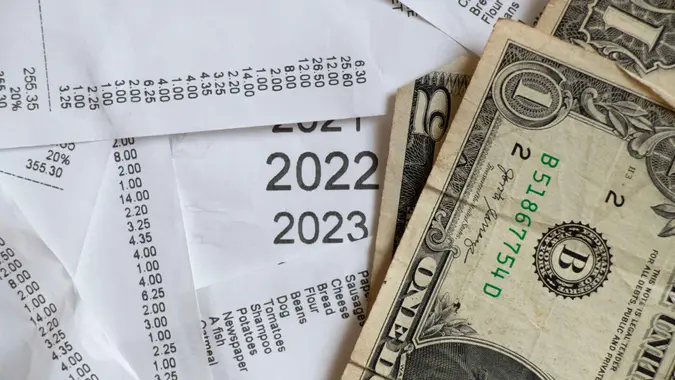Are State Sales Tax Holidays a Sham? Experts Sow Doubt on Their Actual Financial Benefits

Commitment to Our Readers
GOBankingRates' editorial team is committed to bringing you unbiased reviews and information. We use data-driven methodologies to evaluate financial products and services - our reviews and ratings are not influenced by advertisers. You can read more about our editorial guidelines and our products and services review methodology.

20 Years
Helping You Live Richer

Reviewed
by Experts

Trusted by
Millions of Readers
Lawmakers in many states have enacted “sales tax holidays” to temporarily suspend tax on purchases of clothing, school supplies and other items. But in 2023, the number of states with sales tax holidays fell to 19 from 20 in 2022, according to the Institute on Taxation and Economic Policy (ITEP). And experts are split about whether these “holidays” are truly beneficial for consumers.
According to the Federation of Tax Administrators, for the remainder of 2023, sales tax holidays will occur in:
- Connecticut: Aug. 20-26 for clothing and footwear.
- Florida: Aug. 26-Sept. 8 for disaster preparedness items.
- Maryland: Aug. 13-19 for clothing and footwear.
- Mississippi: Aug. 15-27 for firearms, ammunition and hunting supplies.
- Nevada: Oct. 27-29 for purchases by National Guard members.
- New Jersey: Aug. 16-Sept. 4 for school and art supplies, instruction materials and computers.
- Tennessee: Aug. 1-Oct. 31 for food and food ingredients.
However, according to an ITEP analysis, while these sales tax holidays may seem to to help consumers, their benefits are minimal and their downsides are significant — “particularly as lawmakers have sought to apply the concept as a substitute for more meaningful, permanent reform or to arbitrarily reward people with specific hobbies or in certain professions.”
“Sales tax holidays are poorly targeted and too temporary to meaningfully change the regressive nature of a state’s tax system,” Marco Guzman, a senior policy analyst with ITEP, wrote in the analysis. “Lawmakers must understand that they cannot resolve the unfairness of sales taxes simply by offering a short break from paying these taxes.”
In turn, Guzman wrote that greater tax fairness could be better achieved with permanent refundable low-income sales tax credit, state-level child tax credits or earned income tax credits, “which would do more to help families make ends meet and to offset the impact of the sales tax on low- and moderate-income taxpayers.”
 Written by
Written by  Edited by
Edited by 

























